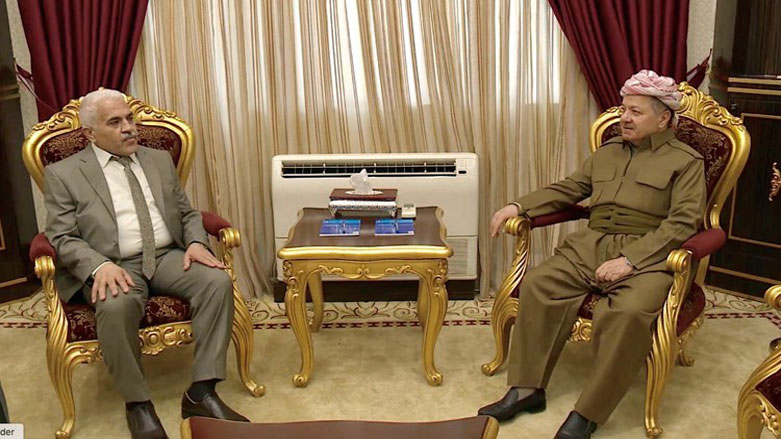Barzani meets Syrian Kurdish political prisoner, expresses concern about future of Kurds

ERBIL (Kurdistan 24) - The Kurdistan Democratic Party (KDP) President, Masoud Barzani, on Wednesday met a senior member of the Kurdistan Democratic Party of Syria (KDP-S), Abdulrahman Apo, who was recently released by Kurdish authorities in Syria after being imprisoned last year.
Barzani expressed his happiness for the release of Apo, adding, at the same time, his deep regret over the arrest of a politician by a Kurdish party and his concerns for the future of Kurds in Syria, Apo told Kurdistan 24.
Apo was arrested in Afrin in July 2017 and then handed over to the Syrian regime when the city was besieged by Turkey and its rebel allies. He was delivered back to the Kurdish administration in the northeast, where authorities released him in Qamishlo city last month.
Barzani in an earlier statement called on the Democratic Union Party (PYD), the dominant party in Syrian Kurdistan (Rojava) to release all Kurdish political prisoners and activists.
Tensions between the PDK-S and PYD have increased since the outbreak of the Syrian civil war in 2011, during which the latter established a self-administration and a military force known as the People’s Protection Units (YPG), which is the leading element of the US-backed Syrian Democratic Forces (SDF).
Barzani previously mediated between the PYD-led ruling council of Rojava and its opposition, the Kurdish National Council (known as the KNC or ENKS). Three agreements were signed.
The first agreement, the Hawler I Agreement, was signed in Erbil on June 11, 2012. The second accord, the Hawler II Agreement, was reached in Erbil on Dec. 24, 2013, and the third one, known as the Duhok Agreement, was signed in Duhok on Oct. 22, 2014.
However, none of the stipulations in the accords have materialized because of political disagreements between the two blocks.
Editing by Nadia Riva
